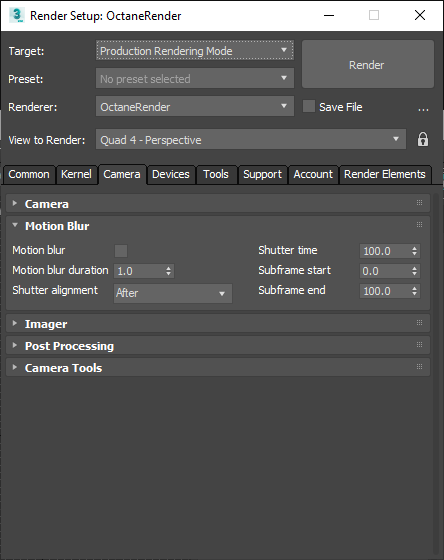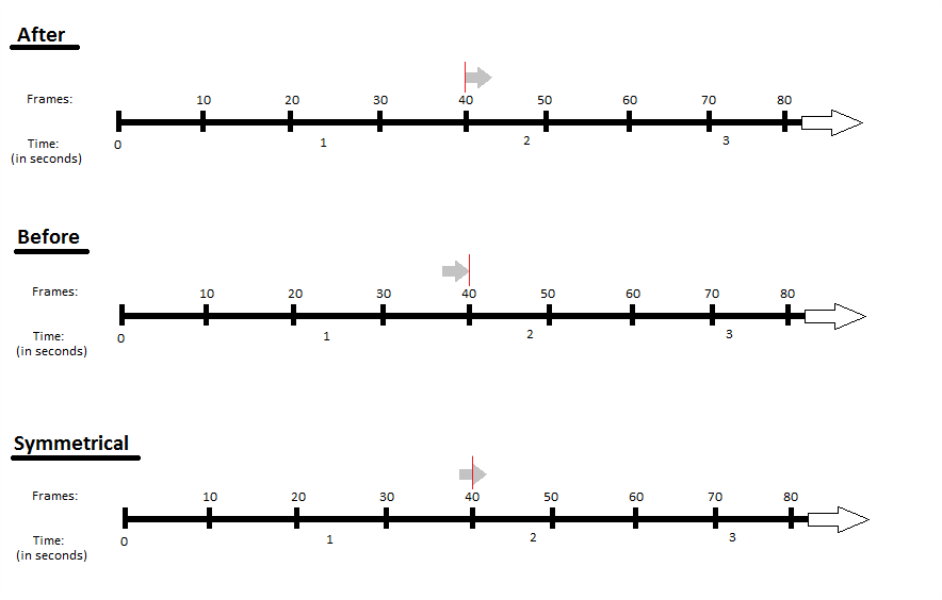Camera Motion Blur Settings
The Motion Blur parameters controls the shutter interval. The value is relative to the frame time. Shown below are the Motion Blur parameters under the Render Setup window, but similar settings are found under the Modify Panel of Octane Camera and Universal Camera.
|
|
Camera Motion Blur
|
Figure 1: Octane Motion Blur settings in the Render Setup window
Motion Blur Parameters
Override Motion Blur - Available as an option for individual cameras, not an option if using the motion blur parameters in the Render Setup window. Replaces the global settings with its own camera motion blur settings. The global settings can be found in Render Setup > Camera Tab > Motion Blur.
Motion Blur - Enables or disables motion blur for the camera.
Motion Blur Duration - Overall control of motion blur settings.
Shutter Alignment - Specifies how the shutter interval aligns to the current time, which determines when the camera shutter is triggered. The options are Before, Symmetrical, or After, and they apply to each frame thereafter relative to the given frame rate.
|
|
Shutter Alignment
|
Figure 2: Illustrating the After, Before, and Symmetrical Shutter Alignment
Shutter Time - The shutter time percentage relative to the duration of a single frame, which controls how much time the shutter stays open. You can set this parameter to any value above 100%.
Subframe Start/Subframe End - Specifies the approach, in terms of proportion (%) to simulate the camera’s shutter speed for that particular frame. OctaneRender uses Subframe Start and End percentages to render only a portion of a particular frame. If the scene has a lot of motion blur, OctaneRender® uses these parameters to render a piece of that motion blur. The default Start and End values of 0% and 100%, respectively, render the whole frame.
|
IMPORTANT Motion Blur with texture displacement is currently not supported but vertex displacement is supported. |


